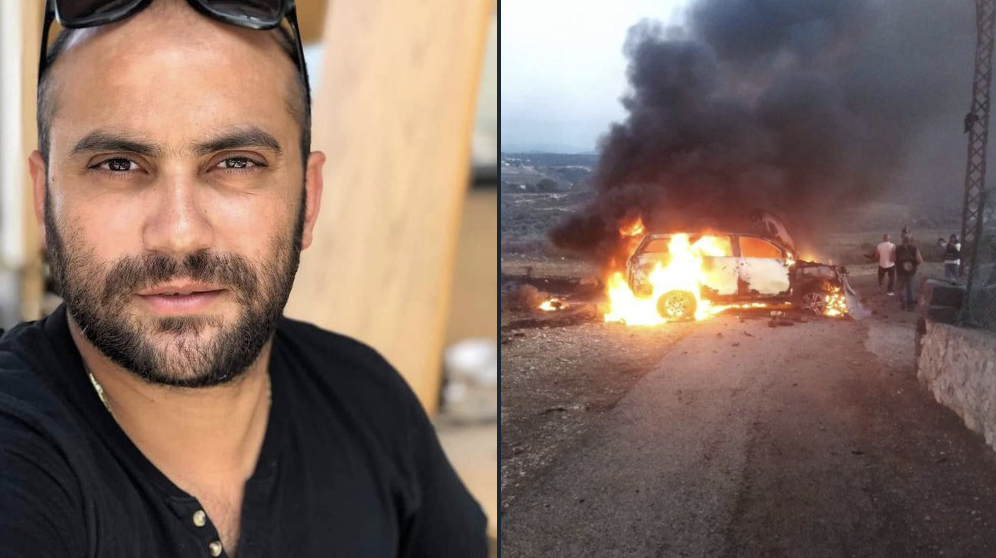The group of international press were covering events in the south of Lebanon when they were targeted by Israel.
An Israeli airstrike targeted a group of international press covering ongoing developments in southern Lebanon on Friday, killing one and injuring at least two others.
The strike hit Alma Al Shaab along the southern border with Israel where a group of journalists from a number of news agencies and outlets from around the world were filming.
Reuters journalist Issam Abdullah was confirmed killed while two Al Jazeera journalists, Karmen Bakhindar and Eli Brakhia were wounded in the attack. Abdullah’s last post on X, formerly known as Twitter, was a video displaying an Israeli airstrike in the area.
Footage taken from cameras that were recording at the time showed the moment of impact. A frantic Bakhindar was heard saying “I can’t feel my legs”. Other footage that circulated in the immediate aftermath of the incident showed her being pulled to the side of the road with a clear leg injury.
A number of AFP journalists were also reportedly injured in the attack, though the French agency has yet to confirm this.
Speaking to Al Jazeera, journalist Ali Hashem said his team had separated from the victims just moments earlier.
“They went to a point overlooking the scenery. They were colleagues from Al Jazeera, from Reuters, AFP. It seems that a tank shell hit them directly. It was horrible,” he said.
“The team was clear, everyone was wearing helmets and safety jackets with ‘press’ on them. They were in an open space. It was on a hill, it was open to everyone to see. Whoever is monitoring, observing, can see and know that these these were journalists,” he added.
“Two of our colleagues are in the hospital. Another colleague, a very dear friend, lost his life.”
Neither Reuters nor Al Jazeera have yet issued a statement on the incident.
Tensions have spiked between the Lebanon-Israeli border over the last week after Tel Aviv declared war on Gaza and launched a massive bombardment campaign on the besieged Gaza Strip.
Hezbollah and Israel have engaged in back and forth strikes over the last days though the impact has been minimal. Friday’s attack is the biggest escalation on this front.
The latest developments come amid fears of a major Israeli ground offensive in Gaza, where more than 1 million have been ordered to move south within 24 hours.
Israel warned it would continue “to operate significantly” in Gaza City “in the following days”.
“You will be able to return to Gaza City only when another announcement permitting it is made,” the warning added.
The United Nations has described the demand as “impossible” and warned it would have dire humanitarian consequences.
According to journalists on the ground, thousands have fled to the south, but there appears to be no mass exodus from Gaza City, with Palestinians adamant on standing their ground.
Meanwhile, during a press conference with US Secretary of State Antony Blinken in Doha on Friday, Qatar’s Prime Minister and Minister of Foreign Affairs Sheikh Mohammed bin Abdulrahman Al Thani said his country is working with partners to reach a ceasefire that will “stop the bloodshed and to avoid a surge of violence in the region”.
“The priorities of Qatar within the diplomatic approach is to see a ceasefire, protect the civilians, to release the captives and to work hard in order not to spread violence in the region,” he added.
While Qatar is keen on being a key player in mediation, it must include a “fair solution of the Palestinian cause,” he added.







